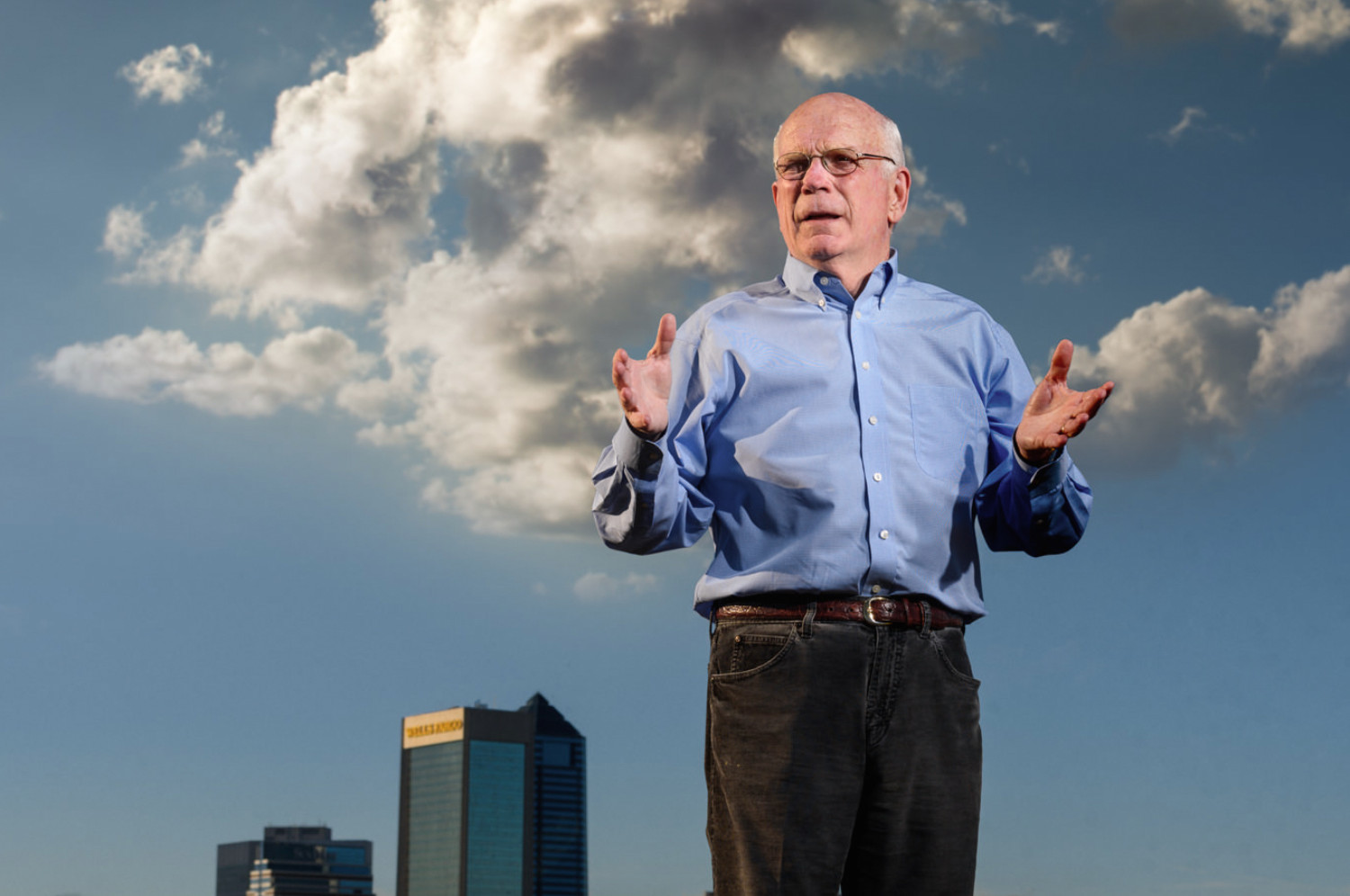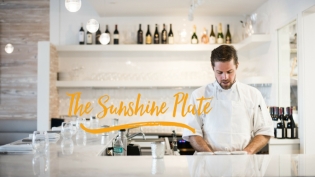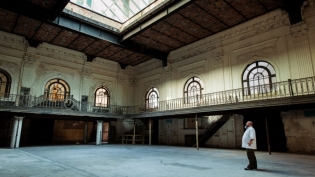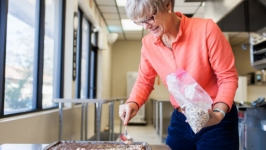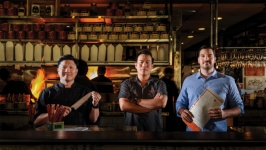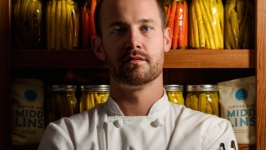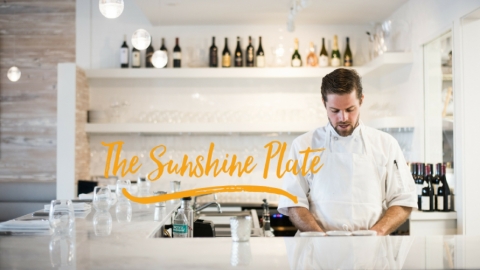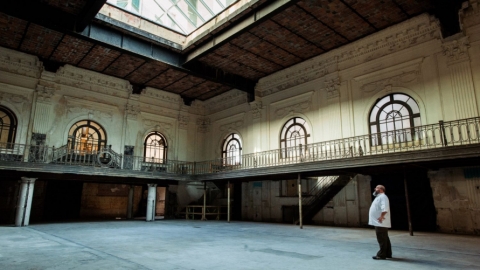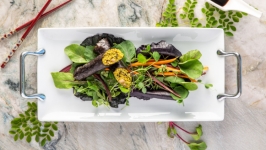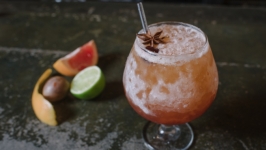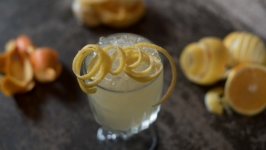Industry Interview: Peter Rummell
Having created some of the world’s most interesting and iconic places,Peter Rummell is perhaps best known locally as a founding board member and the major financial backer of Jacksonville’s One Spark. As a real estate developer, entrepreneur, civic leader, investor and businessman, Peter has held executive positions as the Chairman of Walt Disney Imagineering, chairman and chief executive officer of The St. Joe Company and the Vice Chairman of Rockefeller Center Management in New York City. With his global perspective and background, we asked him for his thoughts on placemaking and how the culinary scene can help shape a community’s identity.
In your business, you spend a lot of time thinking about "placemaking." Describe what "placemaking" means and why it's so important to consider in the development of a community?
I think a lot about placemaking. The mistake most developers make is they get placemaking and architecture confused. Architecture is a piece of placemaking, but it is not the be all, end all. Placemaking is a made-up word the real estate business put together. It refers to how you create a place that is real and genuine. What everybody is after, I think, is that feeling of being comfortable. How many times have you walked into a room someplace, and your shoulders go down, and you just feel comfortable, you don’t know why, but you say “I like it.” That’s placemaking. Your goal is to make people comfortable. It makes them want to come back.
What role does food play in placemaking?
That's what I meant when I said placemaking is more than architecture. Certainly in the course of my 45-year career, food plays a much more important role now than it did when I started. It’s a bigger part of the genre than it was in my early days. It’s become one of those building blocks of comfortable.
How do you believe food and drink contribute to the development of a city's sense of community?
Jacksonville has been slow to claim the role of food in placemaking and creating an identity. The question is, what is the identity here? New Orleans is historic and the food feels like it is part of the history. New York has a food reputation because it has everything. So they both have reputations but for very different reasons. One of the things Jacksonville has to decide is: are we New York or New Orleans? Is our reputation because we are true to our roots, and we’re reaching towards southern lore, or is it because we are an experimental kingdom and we’ve got people doing all kinds of cool, trendy stuff? We could go either way. Jacksonville has an opportunity, beyond food, to make its name. We have an opportunity to fashion ourselves, and food is an important part of that. One of the things that frustrates me is that we haven’t used the things we have well, like the river. The only place in downtown Jacksonville you can get a predictable meal on the river is Hooters. Part of what we’re trying to do, and it’s part of placemaking, is to use the assets we have.
Is the food and drink industry critical to the development of our region?
I’ve been thinking about my career in the real estate business. I started in 1971 on Hilton Head Island and food back then was sort of a necessity. We had restaurants but there wasn’t a collection of cool, interesting, neat places to eat. There’s something that’s happened to our world that has put food front and center as a mandatory part of placemaking. This is a relatively new influence, it’s 10 or 15 years old, and it's not just the millennials getting old enough to drink. I saw a cuisine destination survey recently; it said that people make 75% of their decision to go someplace based on food. That wouldn’t have been true 30 years ago.
You were a major supporter of One Spark for years, and presumably, this means you believe in the value of start-up development. What advice would you give to food start-ups in the region?
The enormous lesson I’ve learned from being involved with so many start-ups is the lack of business awareness that people with ideas have. I am continually surprised by someone who may have a great technological product but doesn’t have a clue about how to secure it legally, about how to put a cash flow together, how to get a loan. At One Spark, we saw all kinds of ideas that were in desperate need of what I call “back of the house” work. The majority of the help we gave at One Spark was not technological help, it’s been business help. And I bet the food business is the same way.
Your latest project is the development of The District on the Southbank of Jacksonville. One of the goals of the District is to promote healthy living. How do you define healthy living?
One of the things we have added to the description of The District is multi-generational living. Partly because I am 71, I am obsessed with the fact that I don’t want to go live with a bunch of other 71-year-olds. And frankly my 4-plus years of experience at One Spark is one of the things that made me realize that. I really get energized by being around bright, young energetic people. One of the ways we can attract all ages is a food and beverage scene.
How will your selection of food and drink purveyors at The District reflect your commitment to healthy living? Has an effort been made to recruit local businesses?
One of the things we have been toying with is we need to develop a relationship with a farm who can be a purveyor of stuff. It’s on our short list of things to get done, and maybe we could provide them with some guaranteed customers.
Will there be community gardens at The District where residents can grow their own food?
We only have 30 acres, so we’re trying to figure out how to grow some things onsite. With all kinds of horizontal walls for vertical farming, we want to be smart about how we use the space. We’re going to set a tone and an atmosphere. One of the terms we use is unintentional exercise, and that’s what gardening is.
If there is one thing our local food industry could do to help foster the sustainable development of our region, what would it be?
Continue to be dependable customers of local vendors. If all the restaurants at the District got together and were dependable clients for a 40-acre farm, that helps everybody. That would be the beginning of sustainability, which is predictability. Also, cooperation within the food industry. Hopefully businesses will see the benefit of competition in that it continues to attract more people overall to the community. I hope we can create a spirit of teamwork, that we’re all in this together. And that the competition is not the guy next store, it is the guy in another city.


